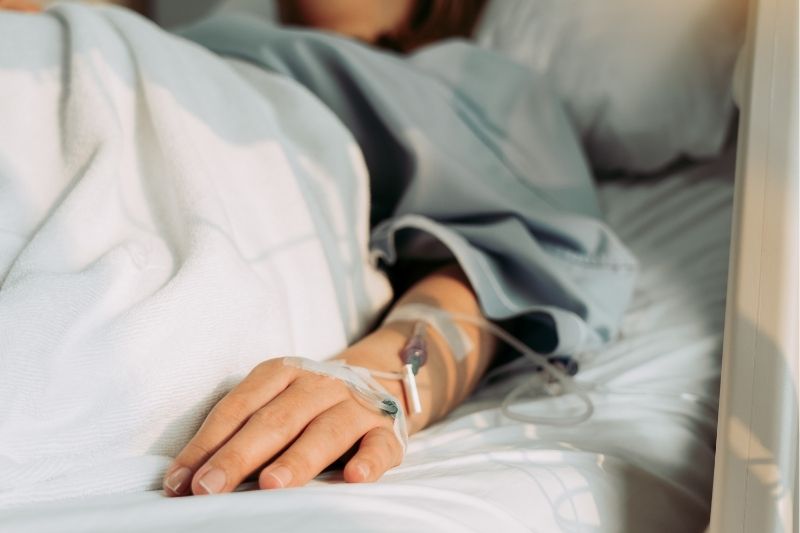As a self-employed person or freelancer, you probably have a lot of good reasons for choosing to be your own boss, such as the freedom over when and where to work and a more flexible schedule.
But being self-employed comes with its own sets of challenges, and a heavier sense of responsibility for your own financial stability.
One of the biggest uncertainties for a self-employed person is what will happen if you fall ill. More often than not, salaried employees have the certainty of company-sponsored hospitalisation insurance and paid medical leave. But as a self-employed person, the burden falls on you to ensure you have enough financial protection in such a scenario.
Here we explore why insurance for freelancers is a critical priority, the characteristics of some industry-leading best health insurance plans for the self-employed, how hospital insurance works in Singapore, and why hospital income insurance is so important for gig workers.
Gig Workers are Particularly Vulnerable
The lack of financial support in the face of illness and injury is particularly pertinent in a time when more and more Singaporeans are engaged as gig workers in sectors such as food delivery, in the course of which physical injuries can easily be sustained.
Disturbingly, a 2023 study[1] found gig workers to be the “most financially stretched” group in Singapore, with an expense-to-income ratio of 112%. With a relatively high risk of physical injury on the job and work that cannot be done while injured or ill, this group is particularly vulnerable to income loss in the event of hospitalisation.
From 2024, those below the age of 30 who are working for platforms such as GrabFood, Deliveroo and foodpanda must be compensated should they get injured on the job, according to a recent news report[2]. This improvement, however, does not solve the issue of lost income during periods when the gig worker is injured.
Self-Employed vs Salaried Employee
What is the difference between being a self-employed person and a salaried employee in Singapore?
Other than different working terms and conditions, one key distinction is that salaried employees are usually assured of financial support from their employers when they need medical attention, while self-employed persons do not have any. Salaried employees are often covered under their company’s health plans, while self-employed persons may not have health insurance.
To counter this lack of support, self-employed persons and freelancers must take steps to protect themselves by purchasing insurance.
Support for Medical Bills
Salaried employees often receive corporate health insurance from their companies.
This insurance will offer coverage for their medical bills should they be hospitalised. In addition, depending on the employment contract, the employer might also agree to reimburse part or all of the employee’s medical bills when he or she visits a doctor.
Self-employed persons or freelancers do not receive such support in the form of health insurance, and must thus take steps to ensure they are protected from large medical bills.
Despite the government’s efforts to ensure that taxi drivers, private-hire car drivers and freelance delivery workers are offered compensation for workplace injuries[3], responsibility for one’s own medical costs, and having adequate income in the face of hospitalisation through hospital cash benefits, still falls squarely on the shoulders of most self-employed persons.
So, how can you protect yourself as a self-employed person? One key step is to purchase hospitalisation insurance in the form of an Integrated Shield Plan (IP). An IP will cover a large part of your medical bills if you are hospitalised, although there will be a co-payment portion of at least 5% and usually up to 10% that must be paid by you. When deciding which insurance is best for you, self-employed persons should balance monthly premiums against the coverage afforded by each plan, and decide based on their financial situation.
Self-employed persons may also wish to purchase an early critical illness insurance policy such as HL Assurance’s Early Protect360 Plus. Such a policy pays out a lump sum if you are diagnosed with a covered critical illness like cancer or stroke at an early stage, offering financial support so you can focus on recovery.
Paid Medical Leave for Freelancers and Self-Employed Persons
Another key difference between salaried employees and self-employed persons is that salaried employees usually get to enjoy a certain number of paid medical leave days per year.
So, if a salaried employee is hospitalised for 14 days and unable to work, he or she could still be paid his or her full salary during the time spent in the hospital, and will thus see no reduction in his or her earnings.
According to the Ministry of Manpower, employees covered under the Employment Act[4] are entitled to up to 14 days of paid outpatient sick leave and up to 60 days of paid hospitalisation leave, with those having worked for at least 6 months being granted the full entitlement.
Amongst those not covered by the Employment Act are civil servants, executives and managers, who tend to command higher salaries and have even more favourable contractual terms.
The situation is more dire for the self-employed. As a self-employed person, if you do not work, you do not get paid, simple as that. As you have no employee benefits, you cannot generate income when you are unable to work for medical reasons.
A stay in the hospital could thus result not only in medical expenses, but also in lost income. While losing one’s income is a serious problem, this can be a particularly terrible blow to self-employed persons with financial obligations such as bills to pay, loans to repay and family members to support.
Fortunately, there is a solution that self-employed persons can use to give themselves financial protection for time spent at the hospital—hospital income insurance.
What is Hospital Income Insurance?
Hospital income insurance pays out a sum of money for each day that you are hospitalised. This sum of money is not dependent on your medical bills and can be used for any purpose you wish, such as your daily living expenses or supporting your family.
For those without traditional employee benefits, hospital income insurance offers a layer of security. A hospital cash benefit can function as a safety net, replacing lost income during a period of hospitalisation.
For instance, HL Assurance’s Hospital Protect360 pays out a daily cash benefit of up to $300 per day if you get hospitalised due to an illness or accident, and up to $900 per day if you are warded in the Intensive Care Unit (ICU). You are covered while abroad, so if you travel for work or are a digital nomad, you can still enjoy coverage for up to 183 days overseas.
This hospital income insurance plan also offers a $100 daily hospital income benefit for time taken off work to recuperate after hospitalisation.
HL Assurance also offers a 4-in-1 insurance bundle plan, where you can be covered for not only hospital income, but also personal accident, home contents and annual travel coverage.
Be your own boss and do your best work, all while giving yourself a safety net with HL Assurance’s Hospital Protect360, which replaces your lost income if you are hospitalised.
—
Written by Joanne Poh – 20 December 2024
About the author:
Joanne Poh is a freelance writer specialising in insurance, property and personal finance. She has written content for some of Singapore’s most prominent insurers, banks and fintech startups, as well as channels such as MoneySmart, PropertyGuru and The Straits Times. Her work has been featured on portals such as Yahoo!, MSN, AsiaOne and herworldPLUS. As a writer, her mission is to give readers digestible information that can help them make better decisions.
Source


